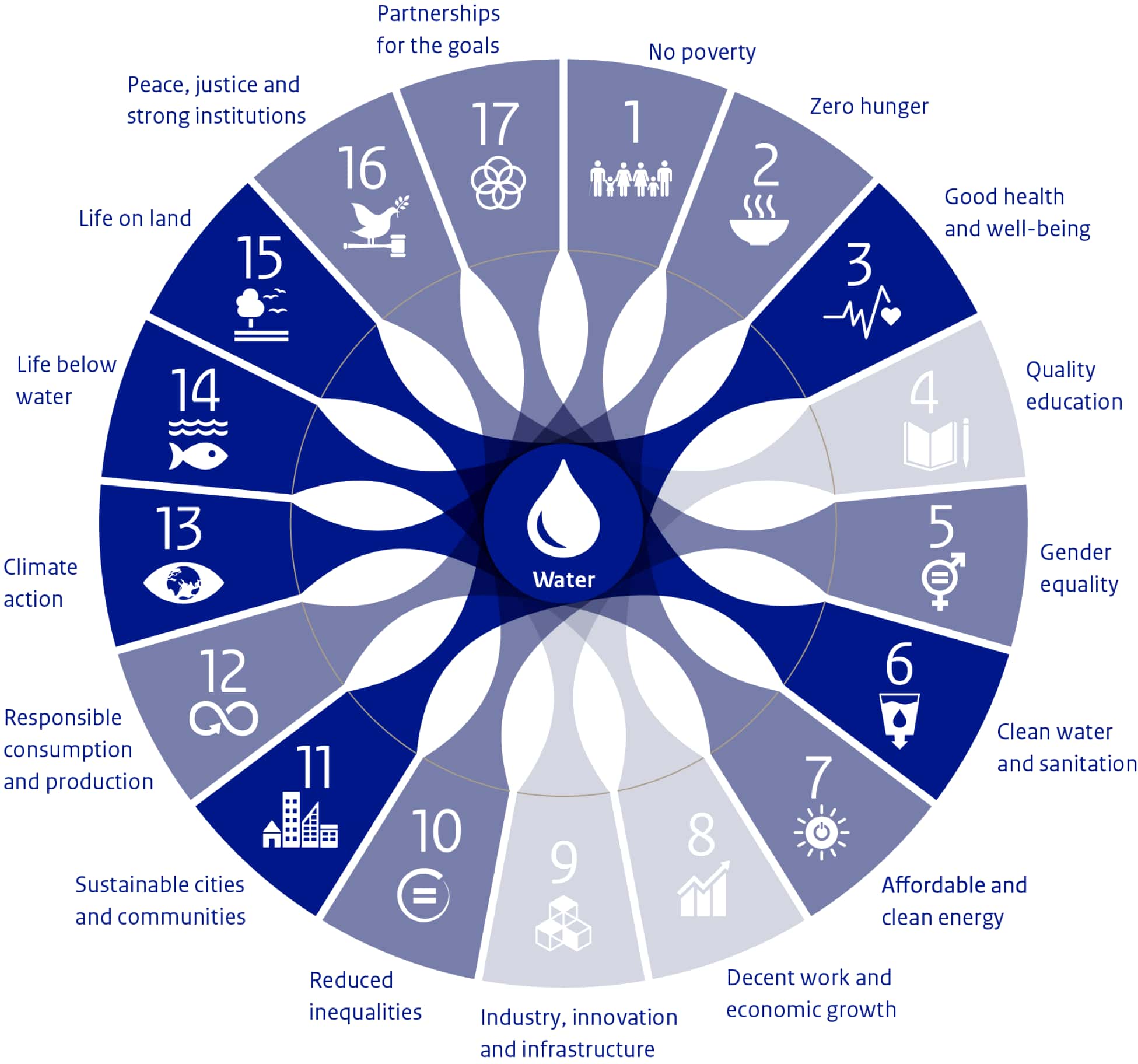
A Key Question in Adapting to Water Challenges

Downloads
DOI:
https://doi.org/10.58981/bluepapers.2022.1.02Published
Issue
Section
License
Copyright (c) 2022 Åse Johannessen

This work is licensed under a Creative Commons Attribution 4.0 International License.
How to Cite
Abstract
More than ever before, there is an urgent need for people to find a path to more sustainable and resilient development. A looming water crisis has reached the top of the international agenda, exacerbated by climate change, which is most acutely expressed through water. The main changes will be in precipitation and evaporation, with extremes of too much and too little water impacting humans and connected ecosystems. Changes in weather patterns and seasonality as well as the melting of ice will affect the availability of water, including during crop growth seasons. With increasing pressure on water systems, this will also affect water quality and put stress on connected ecosystems. Transformations and adaptations are urgently needed to address these issues, and in the search for approaches that accelerate adaptation, social learning has been identified as crucial. However, social learning approaches are often framed as technical or scientific learning, not giving sufficient attention to the important role played by culture and heritage. Integrating culture and heritage in social learning approaches in the area of water governance could boost the human ability to adapt and bring about needed change.
References
Boyd, Robert, Peter J. Richerson, and Joseph Henrich. 2011. “The Cultural Niche: Why Social Learning Is Essential for Human Adaptation.” Proceedings of the National Academy of Sciences 108, no. supplement 2. https://doi.org/10.1073/pnas.1100290108.
Dryzek, John S. 2013. The Politics of the Earth: Environmental Discourses. 3rd ed. Oxford: Oxford University Press.
Gerlak, Andrea K., and Tanya Heikkila. 2019. “Tackling Key Challenges around Learning in Environmental Governance.” Journal of Environmental Policy & Planning 21, no. 3: 205–12. https://doi.org/10.1080/1523908X.2019.1633031
Gleeson, Tom, Lan Wang‐Erlandsson, Miina Porkka, Samuel C. Zipper, Fernando Jaramillo, Dieter Gerten, Ingo Fetzer, et al. 2020. “Illuminating Water Cycle Modifications and Earth System Resilience in the Anthropocene.” Water Resources Research 56, no. 4. https://doi.org/10.1029/2019WR024957.
Ligtvoet, Willem, Arno Bouwman, Joost Knoop, Sophie de Bruin, Kersten Nabielek, et al. 2018. The Geography of Future Water Challenges. The Hague: PBL Netherlands Environmental Assessment Agency. pbl-2018-the-geography-of-future-water-challenges-2920_2.pdf.
Martinez-Conde, Susana, Stephen L. Macknik, and Devin Powell. 2016. “The Plight of the Celebrity Scientist.” Scientific American 315, no. 4: 64–67. https://doi.org/10.1038/scientificamerican1016-6410.1038/scientificamerican1016-64.
Medema, Wietske, Arjen Wals, and Jan Adamowski. 2014. “Multi-Loop Social Learning for Sustainable Land andWater Governance: Towards a Research Agenda on the Potential of Virtual Learning Platforms.” NJAS: Wageningen Journal of Life Sciences 69, no. 1: 23–38. https://doi.org/10.1016/j.njas.2014.03.003.
Morris, Brandi S., Polymeros Chrysochou, Jacob Dalgaard Christensen, Jacob L. Orquin, Jorge Barraza, Paul J. Zak, and Panagiotis Mitkidis. 2019. “Stories vs. Facts: Triggering Emotion and Action-Taking on Climate Change.” Climatic Change. Springer Science and Business Media LLC. https://doi.org/10.1007/s10584-019-02425-6.
Torfing, Jacob. 2016. Collaborative Innovation in the Public Sector. Washington DC: Georgetown University Press.
United Nations Environment Programme (UNEP). 2022. Adaptation Gap Report 2022: Too Little, Too Slow – Climate adaptation failure puts world at risk — Executive Summary. Nairobi. https://www.unep.org/adaptation-gap-report-2022.


